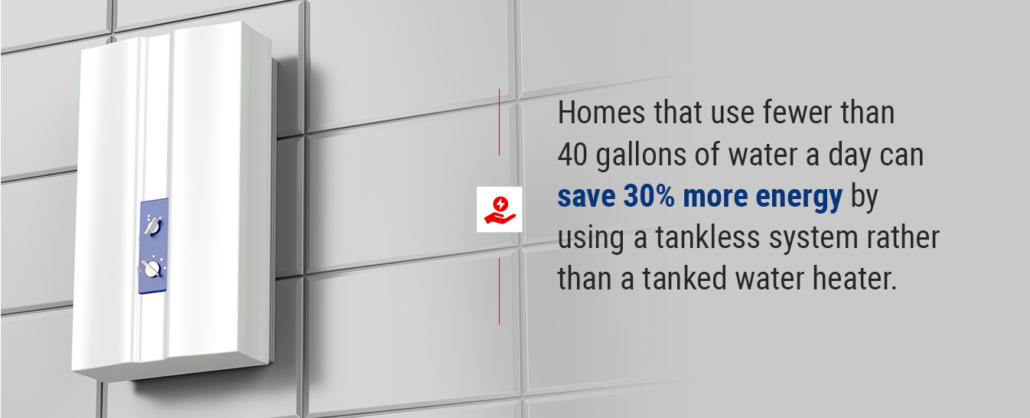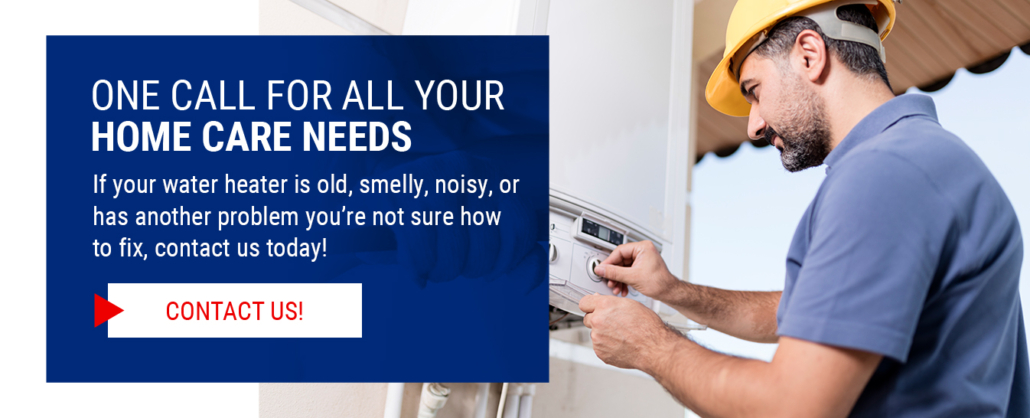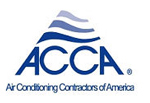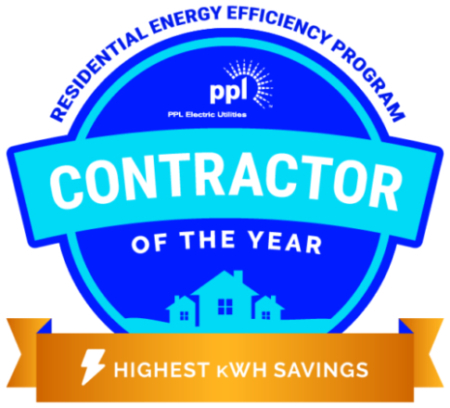Guide To Water Heaters
Whether you think about it very often or not, you use your water heater every day. When you do laundry, wash the dishes, or take a shower, your water heater is working hard behind the scenes. Although it’s an appliance that we frequently take for granted, it’s important to remember how essential a water heater is to a home. But do you know how water heaters work? Or best practices for maintenance for water heaters? If you don’t, you’ve come to the right place. In this guide, we’ll answer all of your questions about water heaters and tell you our top care tips to help you extend the life of your water heater.
How Do Water Heaters Work?
There are two types of water heaters: tankless and tanked. Each one functions differently and uses different resources to operate. Let’s go more into detail about each type of water heater and how they work.
Tankless or On-Demand Water Heaters:
Tankless water heaters, also known as on demand water heaters, produce hot water when needed but don’t actively store hot water for future usage. When a hot water faucet is turned on, cold water travels through your home’s plumbing system to the water heater, prompting it to turn on. As the water moves through the system, it becomes heated. This allows the water heater to provide hot water consistently until the system is turned off again. The top tankless water heaters can supply up to 5 gallons of hot water every minute, but most provide less. Depending on if the system is powered by gas or electric, the water flow and heat can differ. Some homeowners find that one tankless heater doesn’t supply enough hot water. When this is the case, another unit can be added. However, many homeowners find that one unit is enough. In fact, homes that use fewer than 40 gallons of water a day can save 30% more energy by using a tankless system rather than a tanked water heater.
Storage or Tank Water Heaters:
Tanked heaters, on the other hand, are named for their use of a tank to store hot water. These systems heat water and store it until it’s used. Water is added to the tank from the home’s plumbing system. A sensor within the tank records when more water is needed. A thermostat records the temperature and activates the system to heat the water. Once it is heated, it’s delivered to hot pipes. There is a thick layer of insulation in the tank to keep the water hot for a longer period of time. Most homeowners use these systems simply because they have been the most widely used over the past few decades. While tankless and tanked water heaters are the most common, water heater technology is always improving and changing. In recent years, many different types of systems have been developed. Hybrid systems and smart water heaters are some of the newest technologies that allow for more efficient energy use and better diagnostics. Be on the lookout for these types of water heaters in the near future.
Water Heater Energy Types
Several types of energy can be used to operate both types of water heaters. Typically, both tankless and tanked water heaters use either electric or gas heating systems. Although these are the two most commonly used, there are also other options. Oil-fired, propane, geothermal and solar panel heating systems have become increasingly popular over the past few years and will likely continue to grow in popularity.
How Long Do Water Heaters Last?
The amount of time that water heaters last can vary based on the type of system. Typically, most water heaters last 10 – 15 years. Tankless systems can last much longer but require a higher initial investment. When purchasing a water heater, the amount of people in the household is the most important factor in deciding on the type of system. The larger the number of people in the home, the larger the water heater, and vice versa.
Water Heater Maintenance Tips
It’s likely that even if you own a water heater, you don’t know much about its maintenance requirements. That’s okay — it’s what we’re here for. The most important water heater care tip is simply to get your water heater checked periodically. The best way to ensure the longevity of your water heater is to perform regular maintenance. By doing so, your water heater will last much longer and won’t have as many problems. It’s recommended that you get your water heater serviced annually. After all, preventing issues is always much easier (and cheaper) than replacement.
In addition, if you have a tanked water heater, there are several water heater care tips you may be able to do yourself. One way to increase longevity and ensure your water stays hot is to improve its insulation. You can put blankets or other insulating materials with cuts in them around coils and valves to help your water heater perform better. It’s also recommended that you check your water heater about once a month to ensure no rodents or pests utilize the insulation.
Another at-home water heater maintenance tip is to flush your water heater tank about once every year. If coils or other parts experience mineral build-up, your water heater won’t perform as well or last as long. You can drain the tank by ensuring your cold water valve is closed and turning off the power supply. Then, connect a hose to the drain valve and use a drain to capture the water. You should drain the tank until the water runs completely clear. This will help your water heater stay in good condition.
It’s important to remember that water heaters are complicated appliances and contain fragile and dangerous elements. If you’re not 100% sure you know what you’re doing when it comes to maintenance, especially when it comes to electrical and surge protection, you should always call a professional.
Is Your Water Heater Acting up? Here’s How to Know When You Should Call a Professional:
If it’s been more than a year since you’ve gotten your water heater system serviced it’s time to call your HVAC company. Just like going to the doctor or getting oil changed, you should never go a year without getting your water heater checked. If your hot water smells or has an odor similar to rotten eggs, it’s likely that it’s a malfunctioning component. Luckily, there’s most likely a fix but best left to a professional.
If your water isn’t hot, or if your water heater is unusually noisy, it likely needs to be replaced. Although most models last about 10 years, some may not last as long. Water heater professionals will be able to diagnose the problem — if it’s not just in need of replacing — and fix it on the spot. Or, when your water heater does break down, a professional can recommend new options and install the new water heater.
Call Zimmerman for Professional Water Heater Help
If your water heater is old, smelly, noisy, or has another problem you’re not sure how to fix, call Zimmerman Plumbing, Heating and Air Conditioning! Our professionals can diagnose and repair your water heater problems within minutes. In addition, we offer regular maintenance services to ensure that your water heater stays in great shape. So, if you want your water heater to last for years to come, contact us today about your water heater needs.













